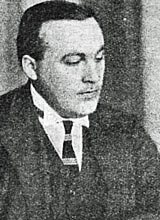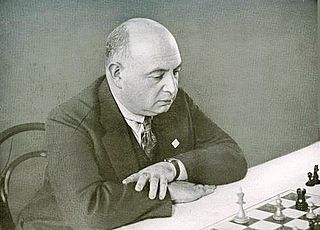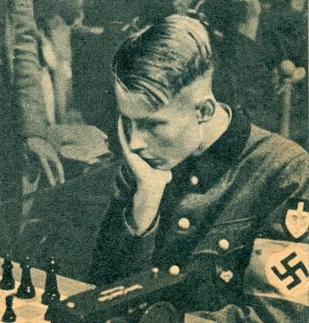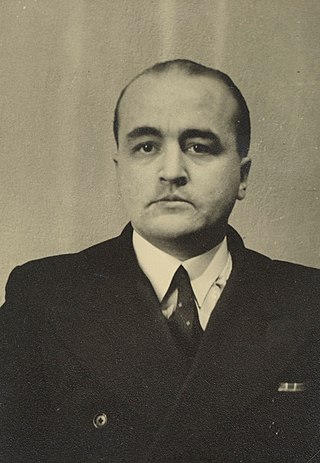Related Research Articles

Alexander Aleksandrovich Alekhine was a Russian and French chess player and the fourth World Chess Champion, a title he held for two reigns.

Efim Bogoljubow, also known as Efim Dimitrijewitsch Bogoljubow, was a Russian-born German chess grandmaster.

Dawid Przepiórka was a Jewish-Polish chess player of the early twentieth century, who won the first Polish championship.

Klaus Junge was one of the youngest Chilean-German chess masters. In several tournaments during the 1940s he held his own among the world's leading players. An officer in the Wehrmacht, he died during the Battle of Welle shortly before the end of World War II.
Paul Felix Schmidt was an Estonian and German chess player, writer and chemist.
Josef Lokvenc was an Austrian chess master.

Hans Müller was an Austrian chess player, theoretician and author of books.

Alexander Flamberg was a Polish chess master.

Carl Oscar Ahues was a German chess International Master.
Karl Gilg was a German chess International Master from Czechoslovakia.
Alfred Brinckmann was a German chess International Master, author and functionary from Kiel.
Paul Mross was a Polish–German chess master.

Leon Tuhan-Baranowski was a Polish-Belarusian chess player and composer.
Reinhold Max Blümich (Bluemich) was a German chess master and editor.
Heinz Nowarra (1897–1945?) was a German chess master.
Hans Roepstorff (1910–1945) was a German chess master.
Below is a list of events in chess in the year 1941.
The below is a list of events in chess in the year 1940.
The below is a list of events in chess in 1943.
Rudolf Keller was a German chess master.
References
- ↑ Chess In Former German, Now Polish Territories - Fred Van Der Vliet Archived 2012-01-08 at the Wayback Machine
- 1 2 Hans Frank and Chess – Edward Winter
- ↑ Goldstein, Alexander (1984). "David Przepiórka". EG . 77 (5): 314–317.
- ↑ Hoffman, Paul (2007). King's Gambit: A Son, a Father, and the World's Most Dangerous Game . Hyperion Books. p. 388.
David Przepiorka.
- ↑ 1940 Archived 2007-09-27 at the Wayback Machine
- ↑ 1941 Archived September 27, 2007, at the Wayback Machine
- ↑ 1942 Archived August 7, 2007, at the Wayback Machine
- ↑ 1943 Archived February 22, 2007, at the Wayback Machine
- ↑ 1944 Archived 2009-01-03 at the Wayback Machine